Key Takeaways
- Noise messes with your sleep, your mood, and your health.
- Even “normal” noise that you can ignore or not even hear, such as street sounds or music through a wall, can raise stress hormones and increase your risk of heart problems over time.
- Simple things help: earplugs, white/pink noise, rearranging furniture, sealing window gaps, or using thick curtains.
- If you feel tired, reactive, or overwhelmed often, you’re not being too sensitive. You’re living with an invisible stressor, and that matters to your health.
- Tiny rituals (for example, cozy audio or a tech-free wind-down before relaxing) can help your body finally switch off.
You’ve had a long day. Work was chaotic. The commute back was even worse. All you want now is to sit down and slowly breathe out on your couch. Maybe even queue up a comfort show, and finally enjoy some peace.
But then out of nowhere – boom.
Your neighbour’s stereo kicks in like it’s 2004 and they’re DJing their own high school reunion. They just rediscovered the Black Eyed Peas. On full volume. And suddenly your quiet, your calm, your safe space? Gone.
Well, I’ve also been that neighbor sometimes. Last week, I rediscovered the CD on which my dad and I put every single Metallica song on. Obviously, I listened to it on my speakers, but still made sure they were not on full blast and that it wasn’t too late, when all my neighbors would be coming home too. I guess we’re not all that considerate.
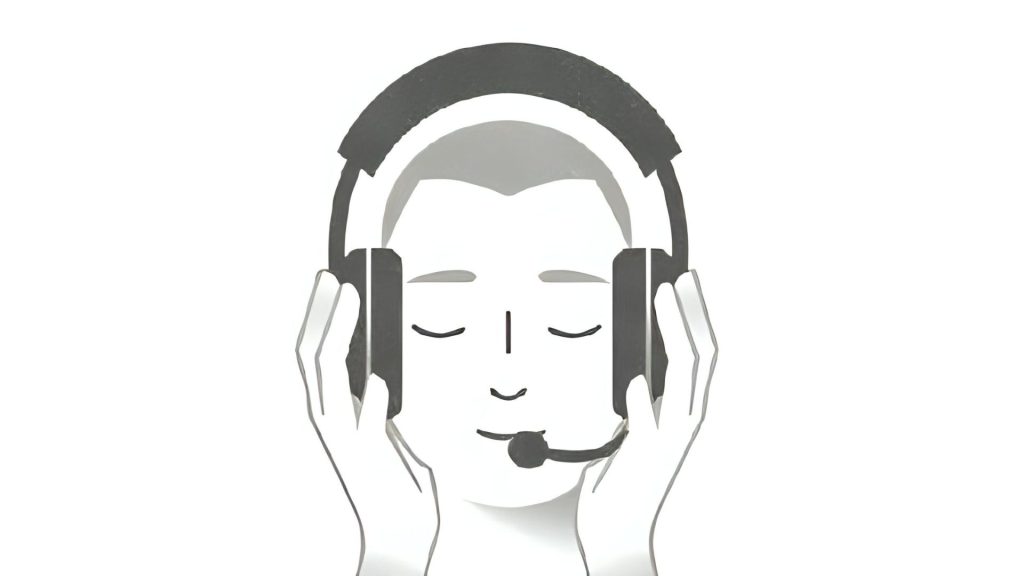
Anywho, we usually brush this kind of noise off, or at least me. Maybe because I don’t want to seem petty. Or maybe because it feels like there’s not much we can do. What am I going to do, knock on their door every day?
But to be honest, after a while, after the same sound invasion, again and again, every afternoon, I started to wonder: what is this actually doing to me? Not just to my mood, but to my mind. My brain. My body.
Does this kind of level of stress just… sit there? Does it build up and come out sideways, like, for example, when I snap at someone at work for no real reason? Or maybe it’s the reason I can’t fall asleep at night, even when the apartment is finally quiet.
Turns out, after I dug into some articles, that there are effects on our bodies, caused by constant noise that irritates us, even subconsciously. And of course, I’m not the only one who’s noticed.
Dr. Arline Bronzaft, one of the leaders and innovators in noise research, puts it bluntly:
“Noise creates stress on the body – and can lead to physiological damage.”
She’s studied how things like traffic and airport noise disrupt sleep and how they have been linked to heart disease and cognitive issues, especially in children. Surprisingly, even moderate noise, she says, “diminishes quality of life” at home.
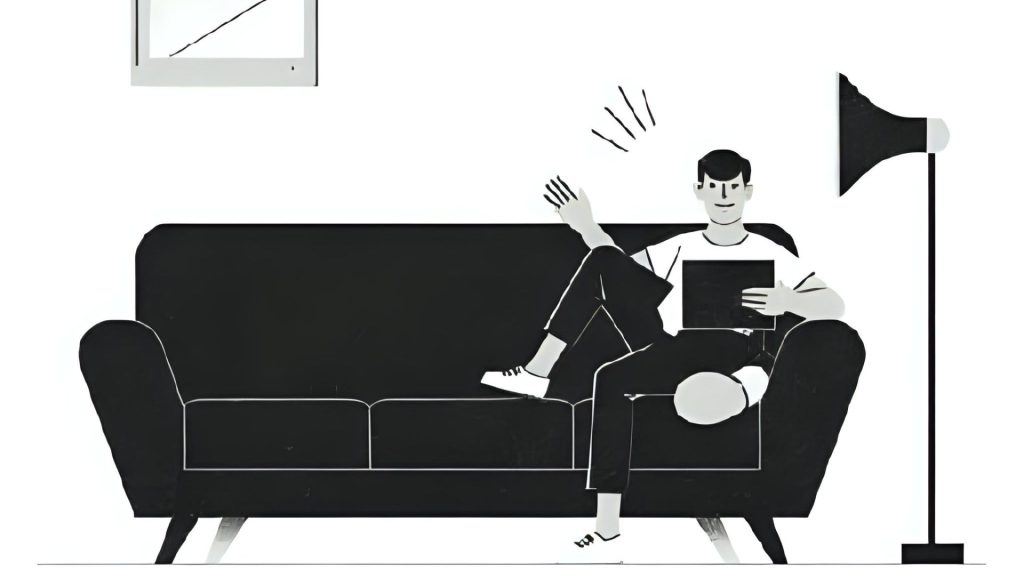
Why can’t we just tune noise out?
Here’s what really caught my attention. Even when you think you’re used to apartment noise, in reality, your brain isn’t.
The background thuds of someone walking upstairs, or the muffled phone call coming through the wall. And don’t get me started on my neighbour’s kitchen blender that apparently doubles as a jet engine.
We might be ignoring all of these sounds. But our nervous system? Not so much.
Our brain is wired to treat unexpected noise as a possible threat. That’s biology doing its job. Our bodies are making sure we’re alert in case something’s wrong around us. And while that’s helpful in a forest full of possible danger, it’s not so helpful when the only thing attacking you is a subwoofer through drywall.
This is what scientists call noise-induced stress activation.
It’s very subtle, and it doesn’t feel like a panic attack. But it still triggers your fight-or-flight response, about enough to raise your heart rate, tighten your muscles, and release stress hormones like cortisol. And here’s the crazy part, even if you don’t hear the noise consciously, your body still reacts to it.
Dr. Charlie Roscoe, a researcher at Harvard, explains it this way:
“There are people who live on busy roads who say, ‘I don’t even hear the noise.’ But even if you don’t hear it…it is potentially still harmful to your health.”
His team found that even small increases in environmental noise, such as the typical daytime traffic, for example, can correlate with higher risks of heart attacks and strokes over time. Scary.
Furthermore, over time, this low-level activation builds up in your body, and the result is that you feel tired, irritable, and anxious. For example, the World Health Organization (WHO) has linked chronic noise exposure to everything from cognitive impairment and poor concentration to increased risk of cardiovascular issues.
Let’s pause here and debrief a bit.
You’re not being dramatic, and no, you’re not too sensitive. That low-level stress you feel after days or weeks of noisy interruptions is really your nervous system trying to protect you from a threat it never gets to escape.
And because this kind of noise doesn’t feel like a real problem, we rarely give ourselves permission to do anything about it, and even escape it, since it’s happening in our home.
Noise + sleep loss = A health storm in the making
You’ve finally climbed into bed, and the apartment is quiet. Your neighbour’s TV is off, the traffic has become almost none, and you’re ready to crash into your pillow.
But your body is, for some reason, still buzzing, still a bit tense, and still not quite “off.”
That’s the thing about chronic noise around you, even when it stops, your nervous system doesn’t flip off like a switch. Especially if you’ve been dealing with all of those noise disruptions throughout your day. Your brain stays in a kind of low-level alert mode because of that.
So you lie there with your eyes closed, tired from the day, but somehow still wide awake.
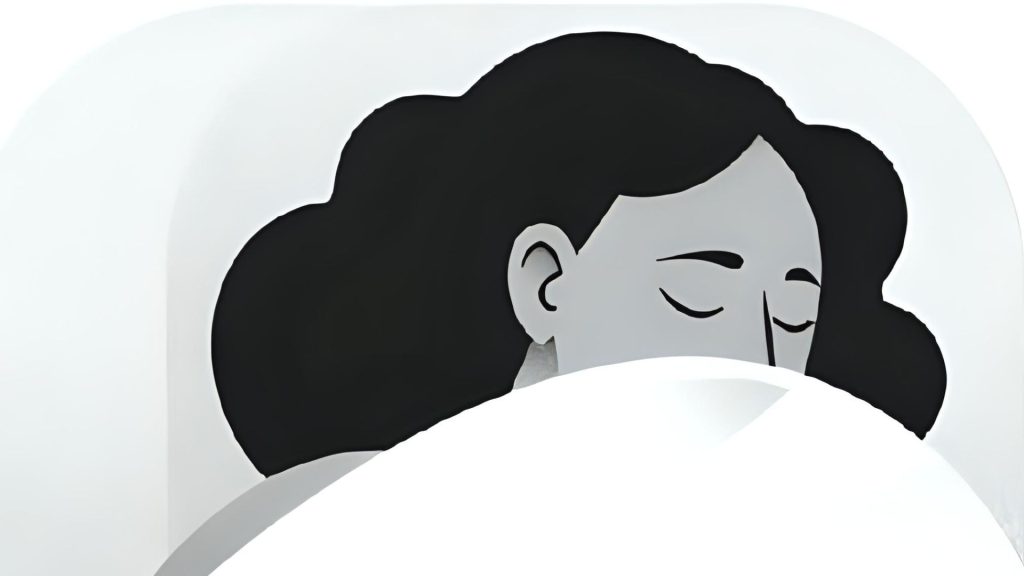
Let’s say you do fall asleep. Great, right? Well almost.
Studies from WHO show that even if you don’t consciously wake up, noise can pull your brain into lighter stages of sleep. It can cause tiny bumps in your sleep cycles that you don’t remember, but your body definitely does.
That means less deep sleep. Less REM. Less actual recovery.
That results in you waking up groggy on most days. Maybe even more irritable. Could feel as if you technically got 8 hours, but your body disagrees with you.
This kind of interrupted sleep is especially common in apartment buildings with thin walls, noisy neighbours, and traffic outside the window. And once it becomes normal, you stop noticing how much better your sleep could be, until you finally get one of those rare silent nights.
Irritability, anxiety, and mental fatigue
Have you had those days when you spill a little coffee, and suddenly it feels like the end of the world?
Or maybe someone asks you a simple question at work, and you snap at them a little. Not because you’re a bad person obviously. Not even because you’re in a bad mood. Out of nowhere, it’s as if your fuse is short. Like, comically short.
Sound familiar?
That’s not just you being sensitive. That’s emotional fatigue that happens, often brought on by invisible, low-level stressors like noise. And the worst part is that you usually don’t realise it’s the noise that’s doing it.
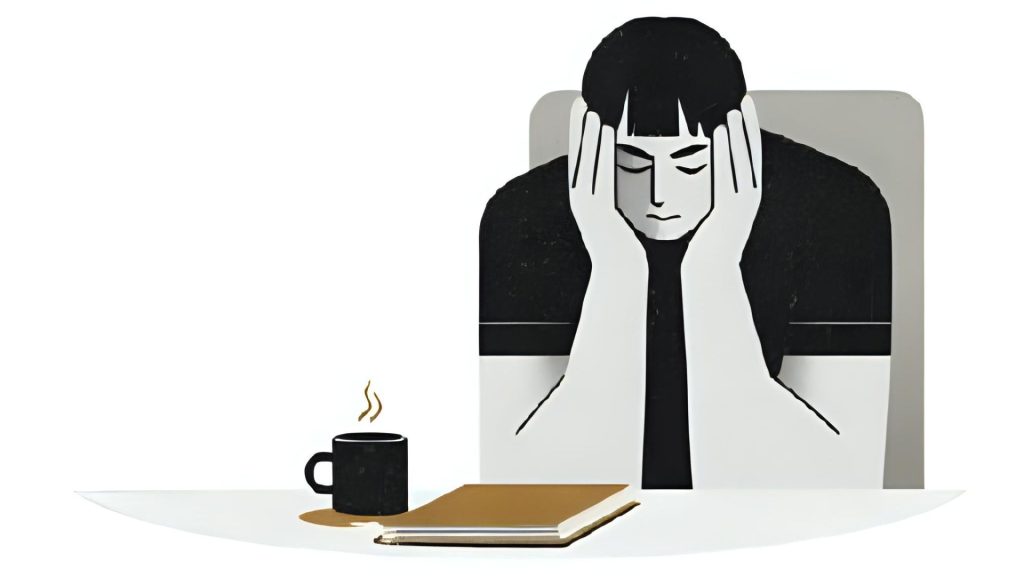
Is background noise connected to anxiety?
Even when you’re not consciously reacting to it, noise can quietly build up some anxiety in your mind and body over time.
Why? Well, because your nervous system is stuck in the ready mode I mentioned earlier. Your brain is scanning for the next interruption or danger. And your body stays slightly tense.
That constant state of low-key alertness is exhausting. It eats away at your emotional bandwidth, leaving you kind of with less patience, less focus, and less ability to self-regulate when something actually goes wrong.
You’re not imagining that your bad mood seems worse when you’re stuck in a noisy environment. It is indeed normal that environmental stressors like sound can increase negative emotions, especially in people already that are already prone to feeling anxiety or overwhelm.
Your body is trying to cope – so let’s help it
Here’s where things get a little more encouraging.
Yes, your environment matters, but your body is incredibly adaptable when it’s given a chance to recover. And even small actions, literally tiny, manageable ones, can help dial down the noise inside, even if you can’t control what’s outside.
So if you’re tired of feeling like you’re always on edge, always bracing for the next interruption? You’re not being dramatic. You’re being human.
There are things that you can try that actually make a difference. Let’s look at a few.
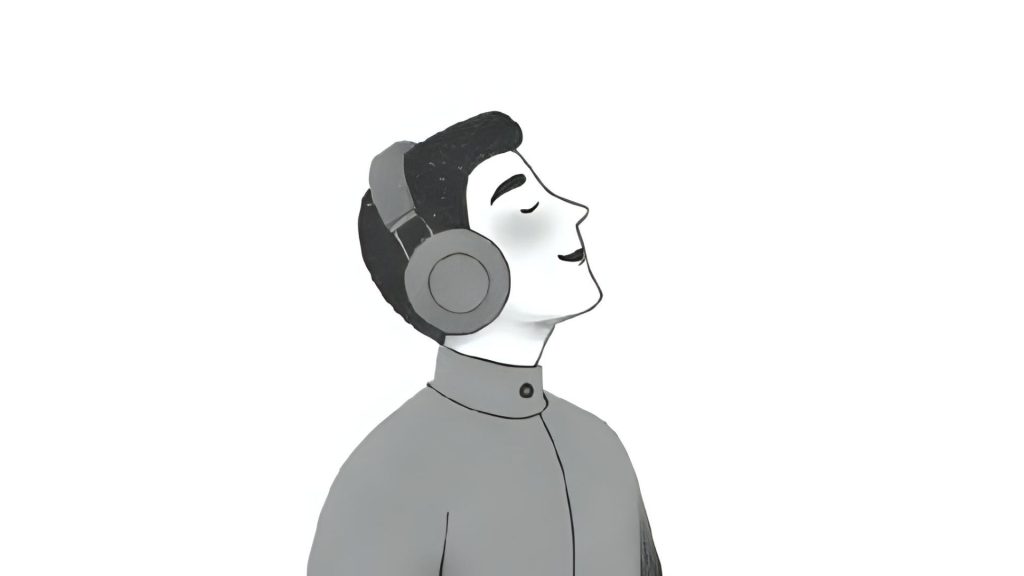
DIY tools that can actually help
Let’s be real. Most of us aren’t about to tear down our walls or move to a remote cabin in the woods.
So what can you actually do when the noise isn’t something you can control, but you still need to function, rest, and feel like yourself?
Here’s the good news: you don’t need to make huge changes. There are small, simple things that act like tiny shields, nothing dramatic, just enough to give your body and brain the needed break.
1. The surprisingly effective classic
The earplugs, and old-school, but seriously underrated. A good pair of foam or silicone earplugs won’t cancel out everything, but they will take the edge off the sharpest, most distracting sounds. Such as hallway stomping in the late hours, traffic, or that one chair your upstairs neighbor insists on dragging across the floor for some reason.
2. White noise (or pink, if you’re feeling fancy)
I used to roll my eyes at this one, I’ve heard so many people swear by it, until I tried it.
There’s something strangely soothing about giving your brain a consistent, non-distracting sound to focus on. White noise helps cover up all the unpredictable stuff and smooths it almost into one steady background layer.
Personally, I’ve found pink noise even better. It’s a little softer, deeper, feels a bit less hissy. There are many many types of similar noise you could try out, there is also brown noise that sounds like you are peacefully flying in an airplane.
And what if you’re not into abstract static? There’s a whole world of cozy audio out there. Lately, I’ve been falling asleep to a YouTube channel called Get Sleepy, which tells slow, peaceful bedtime stories. It’s like guided imagination for grown-ups.
What is also nice about this one, is that there is subtle background noise such as rain, birds, or anyhting peaceful that matches the story that’s being told by the host.
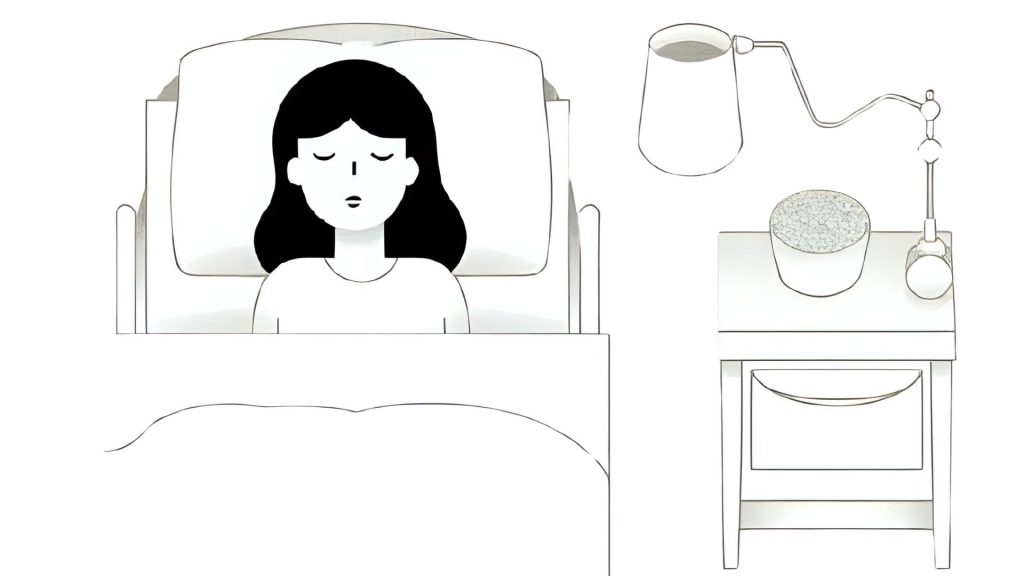
Small rituals before bed
Noise makes your nervous system feel like it needs to stay alert, as we by now have figured our. So sometimes, what helps most is sending your brain a different signal entirely.
Try building a few low-effort rituals into your day, and here’s what I’ve tried recently:
- Play soft instrumental music or ambient rain sounds while winding down, bonus points if you add a cup of herbal tea to the mix
- Put your phone on “Do Not Disturb” for the last 30 minutes before bed, no loud chimes coming from that small device
- Light a candle and read a physical book, maybe a lifestyle magazine, basically anything that tells your body it’s okay to switch off now
None of this fixes the world outside your walls. But it gives your body moments of calm inside them. And that matters, honestly a lot more than we tend to give ourselves credit for.
Let’s wrap this blog up
You absolutely need your quiet time. So the next time someone tells you to just “get used to it”? Feel free to ignore that noise, too.
You deserve quiet. You deserve rest. Science has proved it so many times that it’s impossible to ignore.
And it’s absolutely okay to protect the space where your body and mind can finally exhale after a long day being busy.
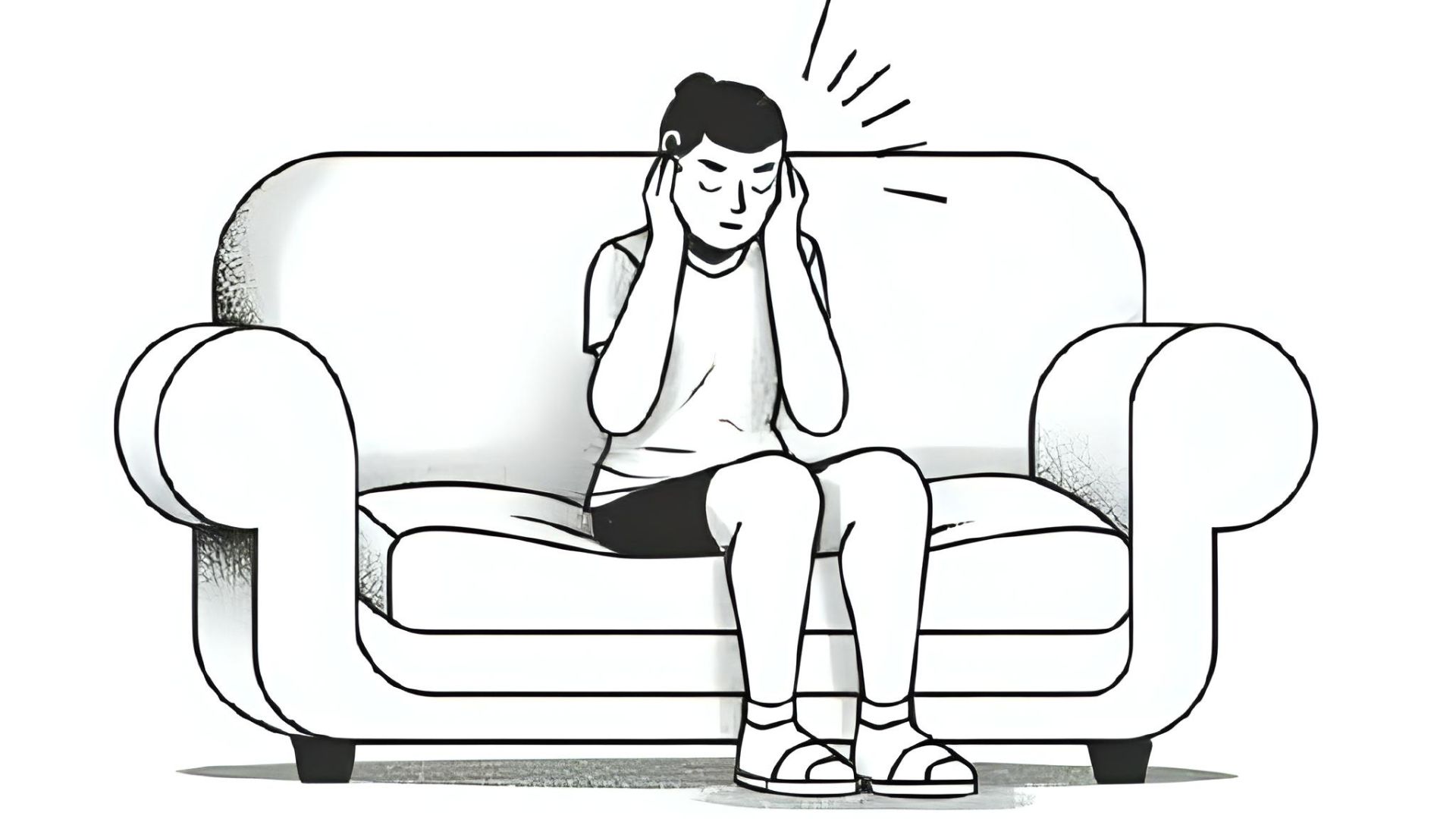
Leave a Reply